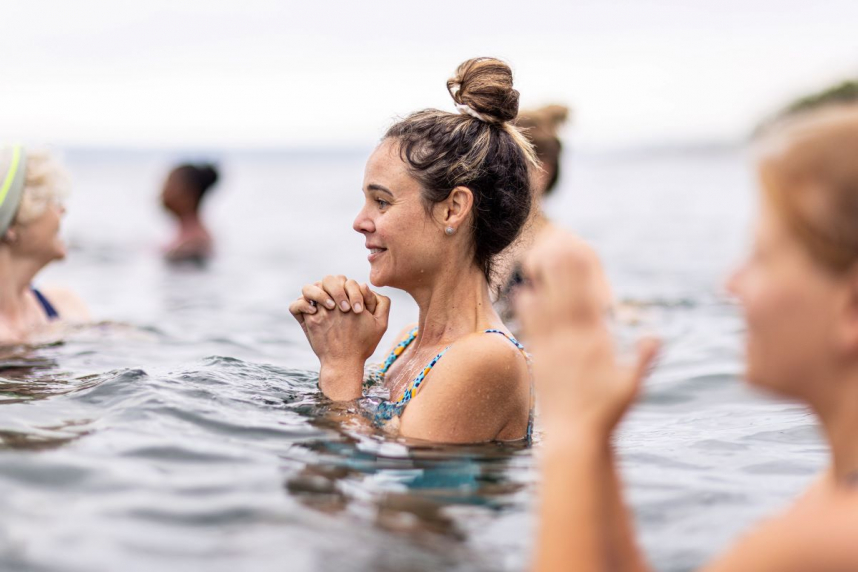
The truth behind the icy wellness trend that promises resilience and vitality.
Scrolling through your social media feed, you’ve probably come across it: wellness influencers submerged in icy lakes, celebrities swearing by morning cold plunges, and coaches promoting the invigorating benefits of cold water immersion. Among the bold claims made for this chilly ritual, one in particular stands out — that it can strengthen your immune system and help ward off illness.
But how much of this is backed by science? Is it truly a gateway to better health, or is it simply a case of the body responding to a sharp shock?
“It’s an age-old belief that immersing oneself in cold water has health benefits,” says Professor Mike Tipton, a human expert and applied physiology at the University of Portsmouth. The idea dates back centuries — think Roman frigidariums and even the famous foot baths of Thomas Jefferson. Cold immersion has long been regarded as a means to promote healing. But what does modern research tell us about its supposed immunity-boosting effects?
As it turns out, the answer is more complex than a simple yes or no. While cold water immersion certainly stimulates the body, that’s not the same as actually strengthening the immune system.
“When you immerse yourself in cold water, your body undergoes what we call the cold shock response,” explains Tipton. “You experience rapid breathing, an increased heart rate, and a surge in stress hormones such as adrenaline and cortisol.” This intense physiological reaction might well explain the rush of energy and heightened alertness people report after a cold dip — a feeling often mistaken for newfound resilience.
But does this translate into better immune protection? The scientific evidence is mixed. Many studies examining the effects of cold exposure focus on immune cell activity in the blood. Indeed, certain immune cells may temporarily increase in number after cold immersion. However, this spike doesn’t necessarily equate to fewer infections or stronger long-term immunity.
“It’s easy to cherry-pick results,” Tipton cautions. He points to a frequently cited Dutch study, where participants who ended their daily hot showers with at least 30 seconds of cold water took 29% fewer sick days from work. The study is often used as evidence that cold plunges can prevent illness. Yet, interestingly, participants reported the same number of infections as those who didn’t embrace cold showers. “That outcome may reflect greater resilience or simply a willingness to power through illness due to being part of a study,” Tipton notes, not necessarily a sign of a more robust immune system.
Another important factor is that people who regularly practice cold plunging or cold water swimming often lead generally healthier lifestyles. Recent research from Tipton’s team found that both indoor and outdoor swimmers experienced fewer respiratory infections compared to non-swimmers, but this likely had more to do with the benefits of regular physical activity rather than the effects of cold exposure alone.
There’s also a word of caution for those tempted to overdo it. “Excessive cold exposure can be harmful,” warns Tipton. “If your core body temperature drops too much, it can suppress immune function.” His advice for those intrigued by the trend? Keep your cold plunges brief — no more than 90 seconds — and listen to your body.
In the end, if you love the feeling of vitality that comes after a cold plunge and it fits into your wellness routine, go ahead and enjoy it (safely!). Just don’t count on it as a miracle shield against illness. For building lasting immunity, science still favors the basics: balanced nutrition, regular exercise, quality sleep, and stress management.
Dimitris Jalacostas, physiotherapist